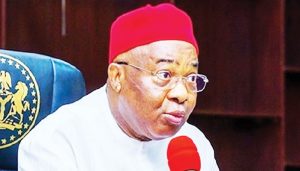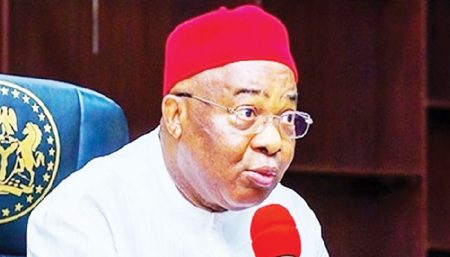The Nigerian Pension Landscape: A Balancing Act between Growth and Eroding Value
The Nigerian pension industry, while experiencing notable growth, faces the formidable challenge of preserving the real value of pension funds amidst persistent inflationary pressures and naira depreciation. Despite posting impressive growth figures in assets under management and profitability, leading Pension Fund Administrators (PFAs) like TrustFund Pensions acknowledge that these gains are effectively negated when adjusted for inflation. This creates a concerning scenario where retirees, despite contributing diligently, face a diminished purchasing power upon retirement. The crux of the problem lies in the limited availability of investment options that can outpace inflation. While PFAs strive to make sound investment decisions, the current investment pipeline is narrow, constricting their ability to generate inflation-beating returns. The call for a more robust legal and regulatory framework to support infrastructure-backed instruments and other growth-oriented assets underscores the need for diversification and expansion of investment opportunities within the pension industry.
Navigating the Investment Landscape: The Search for Inflation-Beating Returns
The quest for investment avenues capable of delivering higher returns is paramount for safeguarding the future of pension contributors. Industry experts, such as Bolaji Balogun, CEO of Chapel Hill Denham, emphasize the importance of strategic asset allocation to combat inflation. This involves shifting focus from traditional fixed-income instruments towards a more balanced portfolio encompassing equities, infrastructure, and alternative investments. The success of this approach hinges on strengthening the overall investment environment and fostering greater transparency and efficiency in the financial markets. A robust investment climate, coupled with sound risk management practices, is essential for attracting both domestic and foreign investments, thereby broadening the range of investment options available to PFAs and ultimately benefiting pension contributors.
Government’s Role: A Double-Edged Sword
The Federal Government’s role in the pension landscape presents a complex duality. On one hand, the proposed N758 billion bond to clear outstanding pension arrears signals a positive commitment towards addressing the welfare of retirees. This move aims to alleviate the financial burdens faced by pensioners who have endured long delays in receiving their entitlements. On the other hand, criticisms arise regarding the government’s utilization of pension funds and alleged breaches of existing laws governing these funds. Concerns about the government borrowing from pension funds and accessing social security contributions, particularly the Employees’ Compensation Fund, raise questions about fiscal responsibility and the protection of workers’ rights. The call for greater transparency and accountability in the management of these funds underscores the need for a clear separation between public finances and the sanctity of pension contributions.
Strengthening Governance and Expanding Coverage: Key Pillars for Sustainable Growth
The future of the Nigerian pension industry relies heavily on strengthening the regulatory framework and expanding coverage to a wider population. The National Pension Commission (PenCom) plays a crucial role in ensuring compliance and market expansion. While acknowledging PenCom’s efforts in enforcing compliance, stakeholders advocate for a more proactive approach towards market development. Expanding pension coverage beyond the current 11 million enrollees, out of a population exceeding 230 million, requires targeted campaigns to raise awareness and encourage both public and private sector participation. Addressing remittance compliance challenges and streamlining administrative processes are vital steps towards building trust and enhancing the efficiency of the pension system.
Labor’s Concerns: Safeguarding Workers’ Rights and Welfare
The Nigeria Labour Congress (NLC) raises critical concerns about the government’s handling of pension and social security matters. Criticisms regarding the alleged misuse of pension funds, delays in remittance, and lack of representation on the PenCom board highlight the need for greater dialogue and collaboration between the government and labor unions. Protecting workers’ rights and ensuring their financial security in retirement are paramount. Addressing these concerns requires a commitment to upholding existing laws, strengthening governance structures, and fostering a more transparent and inclusive decision-making process within the pension industry.
The Path Forward: Collaboration, Reform, and Sustainable Growth
The Nigerian pension industry stands at a critical juncture. While significant progress has been made in terms of asset growth and industry development, challenges related to inflation, investment limitations, and governance issues demand immediate attention. A collaborative approach involving government, regulators, PFAs, labor unions, and other stakeholders is crucial for navigating these challenges and charting a sustainable path forward. This involves enacting reforms to strengthen the legal and regulatory framework, expanding investment opportunities, enhancing transparency and accountability, and prioritizing the welfare of pension contributors. By addressing these key areas, the Nigerian pension industry can unlock its full potential and ensure a secure financial future for retirees.














